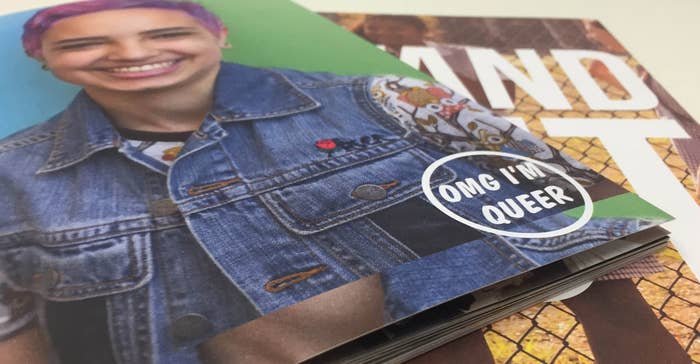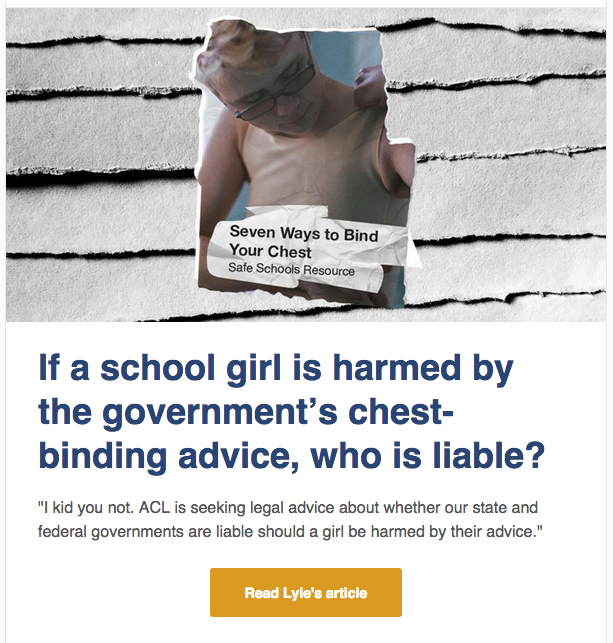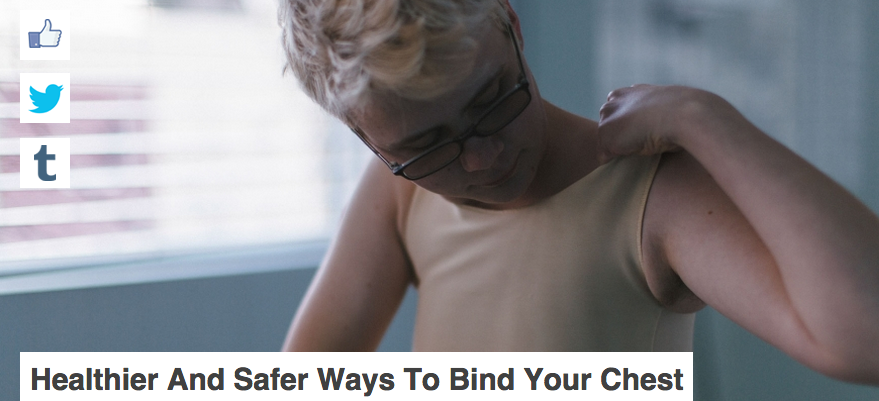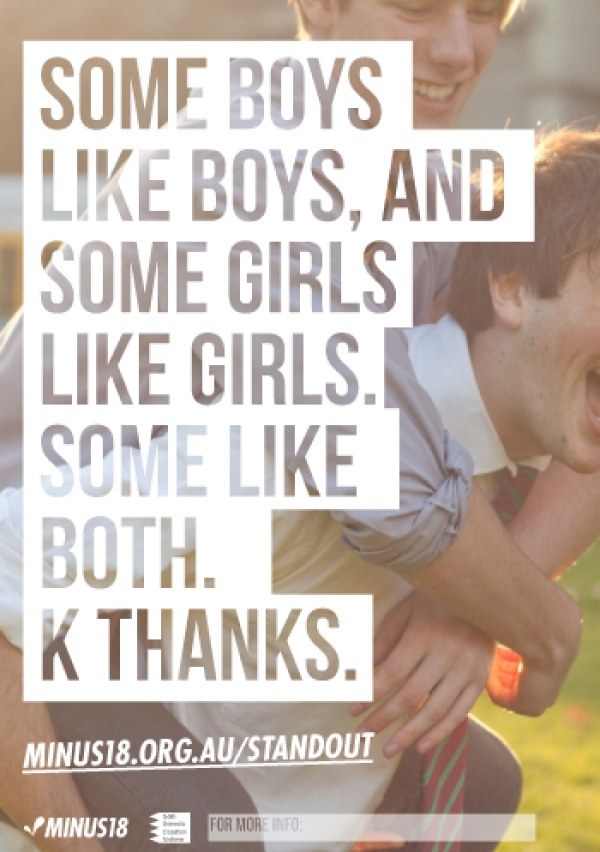In recent months, the Australian Christian Lobby has stepped up its campaign against the Safe Schools Coalition.

The Coalition is a federally funded program that aims to combat bullying and make schools more inclusive of lesbian, gay, bisexual, transgender, and intersex students.
Active in over 400 schools across the country, the program enjoys bipartisan support – but is not without controversy.
In particular, Safe Schools Coalition resources, created by LGBTI youth charity Minus18, have been criticised by the Australian Christian Lobby (ACL) as promoting "radical sex experimentation".
An ACL petition to the Queensland government asking for the cessation of the program gathered almost 11,000 signatures between July and October this year.
In recent weeks, a Minus18 article offering advice on the little-discussed practice of chest binding has attracted the ire of the ACL and other groups.
Chest binding, practiced by many transgender, gender diverse and queer people, is the temporary flattening of one's chest to reduce the appearance or size of breasts.
It is a "really common practice" among young people who are transgender or gender diverse, Minus18 CEO Micah Scott told BuzzFeed News.
Usually, although not exclusively, binding is done by transgender boys and men, who often experience gender dysphoria and mental anguish over their chest.
On the Minus18 website, an article titled "Healthier and Safer Ways to Bind Your Chest" pointed teens away from unsafe methods, like using bandages, and suggested a variety of safer solutions, including layering shirts, sports bras, and purchasing specially made binders.
The article does not appear in Safe Schools Coalition resources or on the website – rather, it is just on the Minus18 website. Minus18 works with the Safe Schools Coalition to provide resources, but they are separate organisations.
However, ACL director Lyle Shelton described the article as "one of the most shocking things I've ever seen done in the name of a government program".
ACL has posted about the practice on social media and made it the central focus of a recent e-newsletter with the subject line "chest binding can kill".

The Australian Marriage Forum also weighed in, despite the issue being unrelated to their central focus of preventing same-sex marriage.
While there are health risks associated with binding, it can be done safely – and for many people, is a life-changing experience that alleviates crippling body dysphoria.
The ACL has sought legal advice over whether the government would be liable if a student was harmed by following the chest-binding advice on the Minus18 site.
However, Minus18 CEO Micah Scott told BuzzFeed News "the whole point of the article" was to have an open discussion and provide information about something people are doing anyway.
"Our transgender and gender diverse young people really identified that there were a number of people who were binding their chest," he said.
"But a lot of them weren't aware of the risks, and they weren't aware of what methods were safe."
"When you're engaging in something that may be unsafe, and you're not talking about it openly, that's when a lot of problems can occur."
Scott said the ACL's description of chest-binding as a practice "to help girls who think they might be a boy to stop their breasts from developing" is willfully misleading.

"What it is, in technical terms, is the temporary flattening of the chest to reduce the visibility of breasts," Scott said, adding that many trans masculine people bind in order to alleviate the stress associated with gender dysphoria.
Crucially, the ACL's claim that binding is intended to hinder breast development is false, Scott said.
"Temporary is the operative word," he said. "I should really stress, binding isn't intended to reduce or stop breast development. And it's actually not very effective in doing so."
However, Scott believes the phrasing – referring to young transgender men and gender diverse people as "girls" – is deliberate, rather than borne of a genuine misunderstanding.
"The language of girls that they use [when referring to transgender boys], and when they refer to a young person affirming their gender they refer to it as cross-dressing," he said.
"I think this language is very deliberately chosen to dismiss these young people's identities and to cause a bit of confusion around the issue."
Queensland ACL director Wendy Francis told BuzzFeed News that she supported anti-bullying programs, but the Safe Schools Coalition goes "way beyond that".

Asked if she acknowledged that resources around being LGBTI might alleviate bullying, Francis said she "could see how that could be effective".
"I certainly think that should be part of a whole bullying program, because then you would include people of a different skin colour, a different language, a different race, a different religion, even."
However, Francis was adamant that an LGBTI-specific program was not the way to go.
"We need to combat this in a whole anti-bullying way, we can't focus on every single issue of bullying."
Scott said that an LGBTI-specific program was essential, and that programs covering all bullying already exist.
"The experiences of LGBTI young people are unique, they are different. And when you're not explicitly talking about sexuality and gender diversity, it can be really easy to miss because LGBTI young people can be largely invisible," he said.
"I think if nothing else, a lot of the research on bullying shows you do need to be explicit about it."
